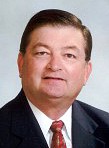
Alex Mills
By Alex Mills
Earthquakes are scary.
Thoughts of the earth moving and shaking hard enough to knock pictures off the wall or even so violently as to bring down tall office buildings frighten everyone. Unlike hurricanes or tornadoes, earthquakes are virtually impossible to accurately predict, and happen without warning.
Some people believe there is a correlation between earthquakes and the oil and gas industry in Texas. Others, however, point out that correlation does not equal causation, and there has been no scientific evidence linking the two.
A recently published paper by researchers at the University of Texas at Austin and SMU alleges a correlation between oil and gas activities and earthquakes since 1925. The study, entitled “A Historical Review of Induced Earthquakes in Texas,” developed five questions designed to assess the value of known information in determining the cause of an earthquake. The questions involve (1) timing of the earthquake in relation to oil and gas operations, (2) location of the epicenter in relation to activities, (3) are focal depths shallow, (4) are activities near a fault, and (5) is there a credible published paper linking seismicity to operations.
Using the authors’ criteria, the paper states that 13 percent were caused naturally while oil and gas operations “almost certainly” or “probably” triggered 59 percent of the earthquakes and 28 percent of the quakes were “possibly” triggered by the oil and gas industry. The paper stated that none of the earthquakes were caused by hydraulic fracturing.
The authors point out that their question-based test is subjective and without objective scientific criteria. They note that “different individuals, after considering the observations, are likely to answer the questions differently.”
There is difference of opinion in the scientific community about induced seismicity. Dr. D. Craig Pearson, an earthquake seismologist at the Railroad Commission, stated in 2015 there was “no substantial proof” that induced earthquakes have occurred in Texas.
Additionally, the Railroad Commission recently changed several rules governing drilling, completion, and disposal well permits that are designed to reduce the possibility of induced seismic activity.
Dr. Scott W. Tinker, the state geologist and director of the Bureau of Economic Geology at the University of Texas at Austin, commented in an op ed column on May 23 that the scientific issue is to determine if human activity is causing earthquakes and what can be done about it.
“Not surprisingly, addressing and answering that question is difficult,” Tinker wrote. “In some places, the increase in earthquakes is associated with the disposal back into the earth of water that has been produced from oil and gas wells. But, as we learned in science class, association does not necessarily imply causation.”
Tinker pointed out that “science depends on independent production of results and rigorous testing, and is improved by challenges brought forth from skeptics, however irritating those challenges may seem.”
In 2015, the Texas Legislature recognized the complexity and importance of the earthquake issue and put in place a program called TexNet at the University of Texas at Austin’s Bureau of Economic Geology. TexNet will deploy 22 permanent seismometers across Texas and an additional 36 portable seismometers where seismic activity occurs. The program also provides research funding to combine key scientific, engineering and other disciplines from several universities to address the complex earthquake issue.
Tinker said there is a lot to learn.
“The concept of ‘settled science’ is silly,” Tinker wrote. “Scientists should at all costs defend the right to challenge science. In addressing challenges, science advances, little by little.”
Alex Mills is President of the Texas Alliance of Energy Producers. The opinions expressed are solely of the author.





















Speak Your Mind